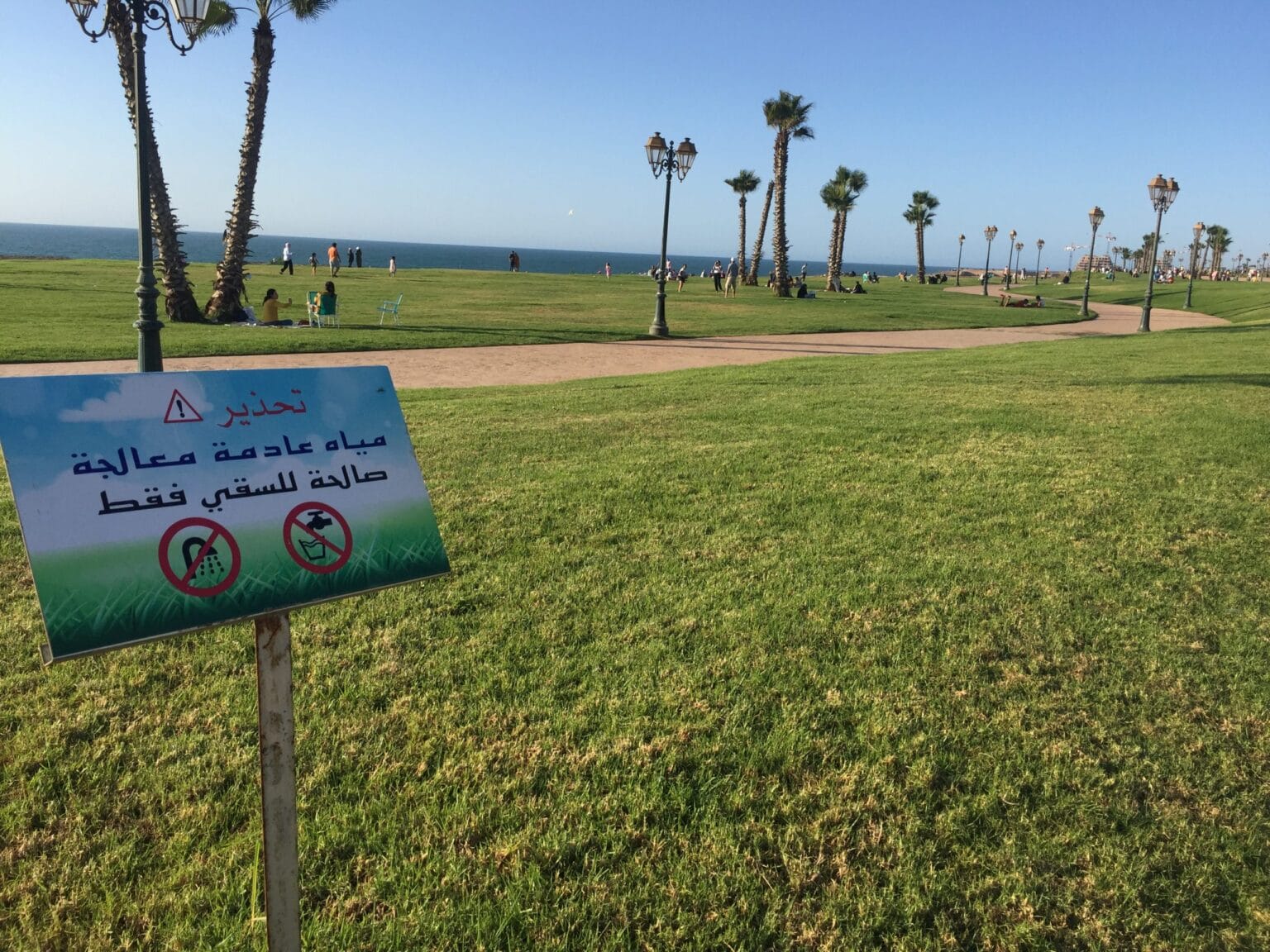The Casablanca-Settat region is undergoing a major transformation in its water management by launching an integrated program for the reuse of treated wastewater for the irrigation of green spaces. This initiative has a significant ecological impact, designed to address the challenges of sustainability and climate resilience in a context marked by the scarcity of water resources.
This ambitious project involves converting wastewater, after treatment, into an alternative resource to supply parks and urban green spaces. It reflects a proactive strategy for environmental preservation, embedded in a circular economy logic, where nothing is wasted and everything is transformed. The goal is clear: to reduce pressure on conventional drinking water resources while maintaining the quality of urban living conditions.
To support this transition, a total budget of 219.5 million dirhams has been mobilized, of which 90.5 million is directly committed by the Regional Council. This funding will allow the program to expand across the entire regional territory and strengthen the technical capacities of the concerned treatment plants.
In practical terms, several stations are already operational. The Médiouna station currently irrigates the green spaces in northern Casablanca and those in the Nouaceur province. Starting September 1, the Aïn Diab station – or Anfa station – will take over to serve the neighborhoods of Casablanca Anfa, including Bourgogne, Ibn Sina, Al Massira, as well as the Casablanca Golf and Moulay Rachid Boulevard. At the same time, natural sources, such as those from Aïn Diab or the Corniche, are also helping to maintain coastal areas.
This program is also distinguished by its strategic coherence. It fits into a comprehensive regional vision for urban greening, enhancing plant heritage, and responsible water management. Thus, it makes Casablanca-Settat a territorial laboratory for sustainable solutions, capable of inspiring other regions facing the same challenges.
By adopting an approach that combines innovation, investment, and eco-responsible management, the region positions itself as a committed player in the fight against climate change and the preservation of natural resources. It also sends a strong signal to its citizens: sustainable development is not a utopia, but a reality that is being built, project by project, action by action.


